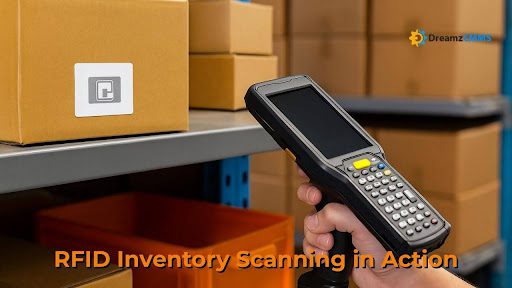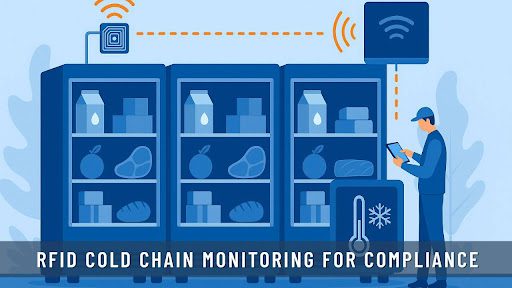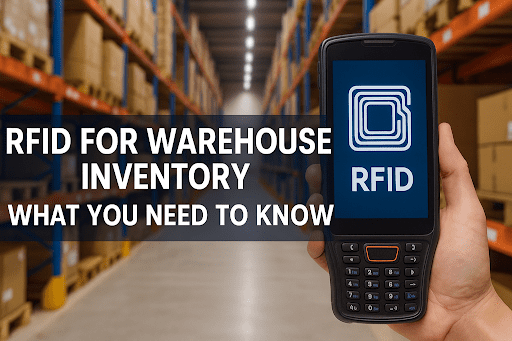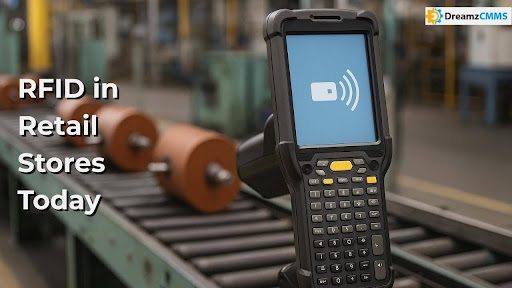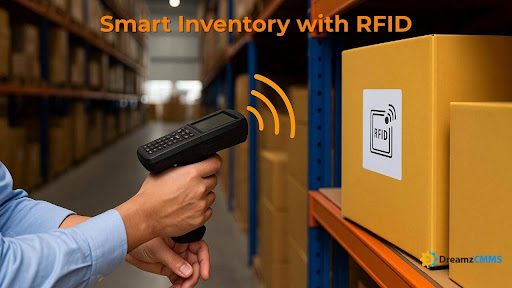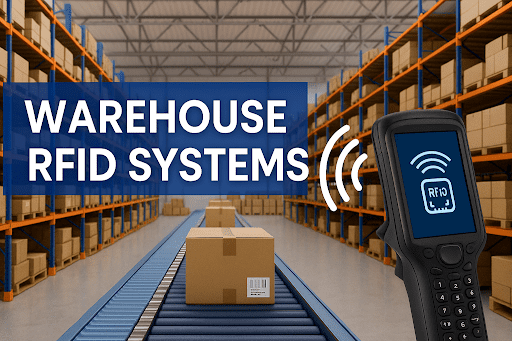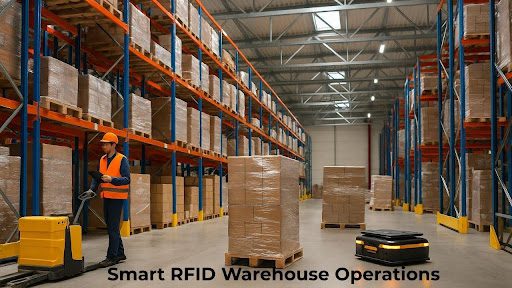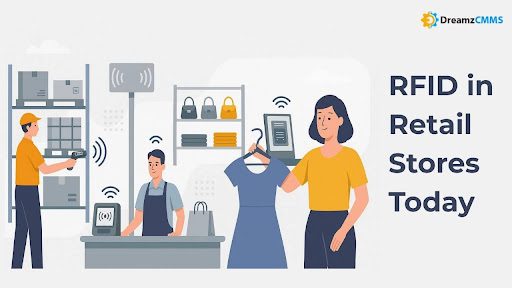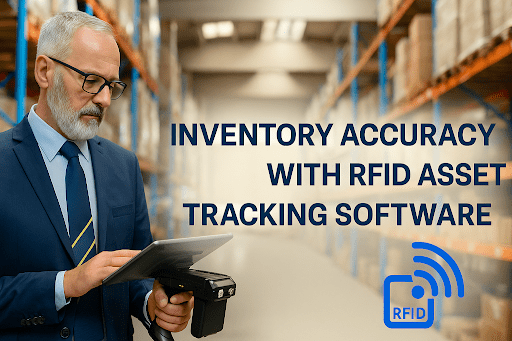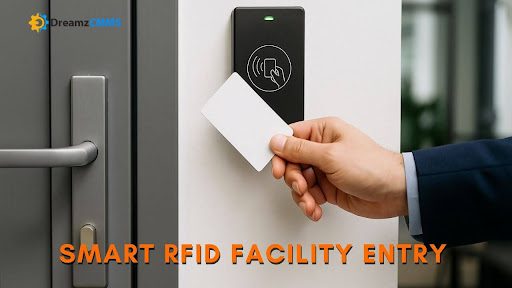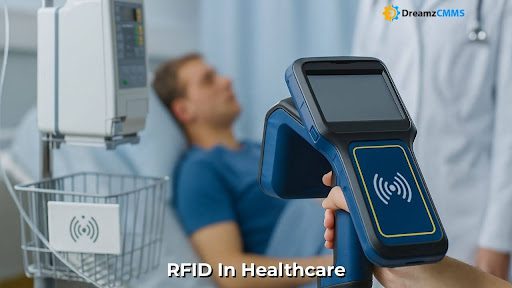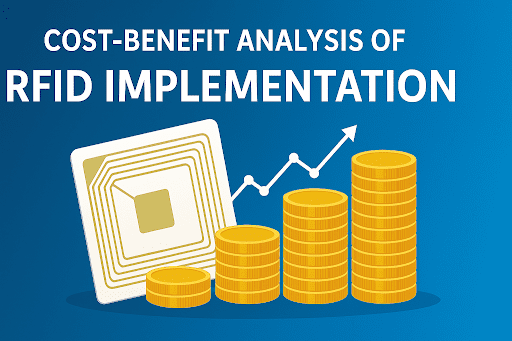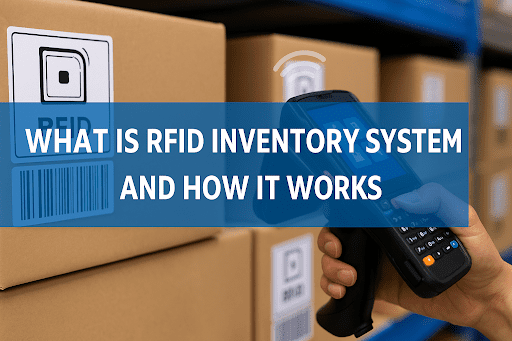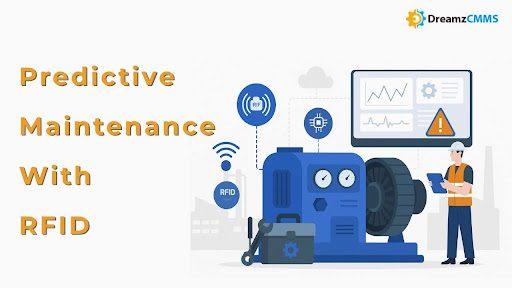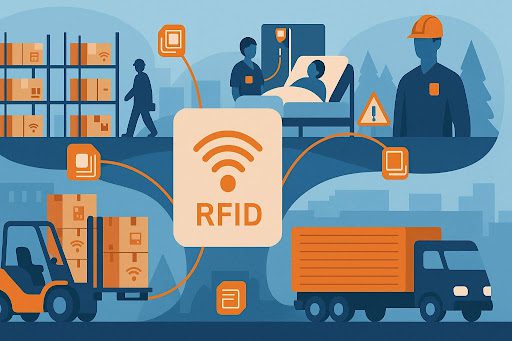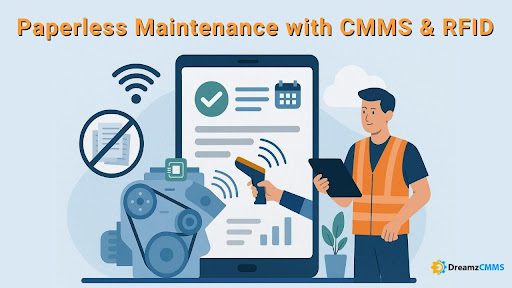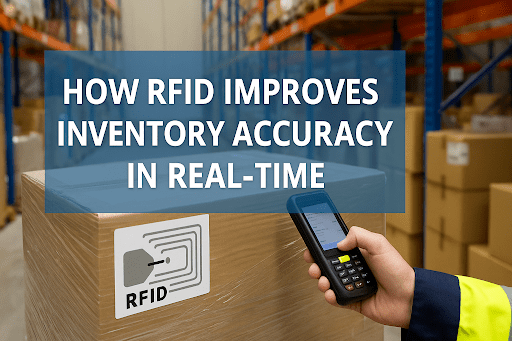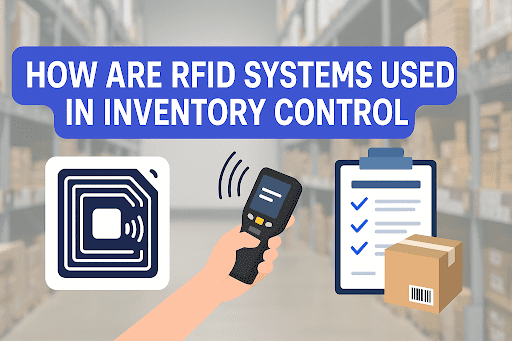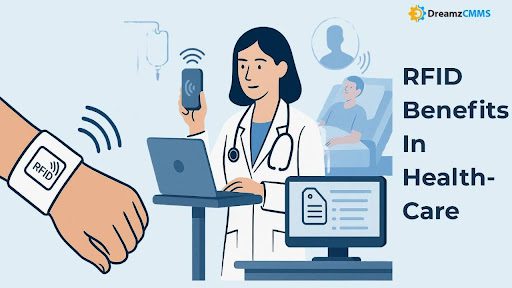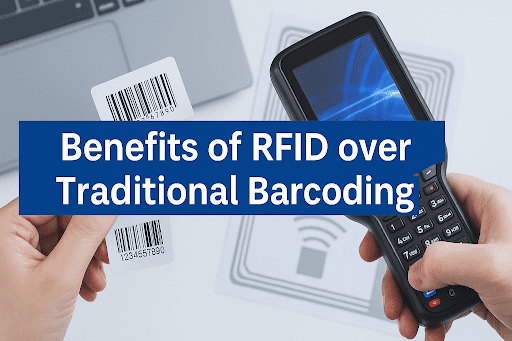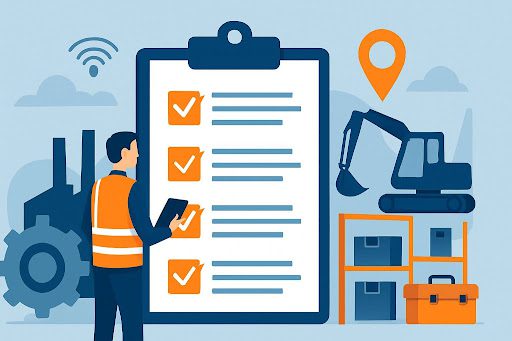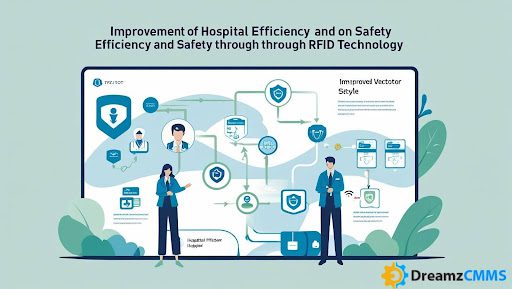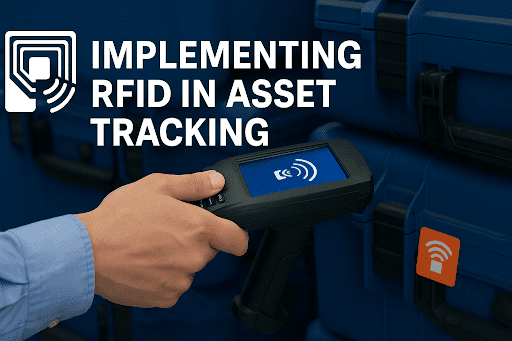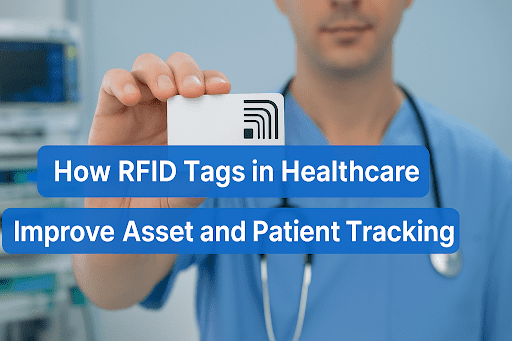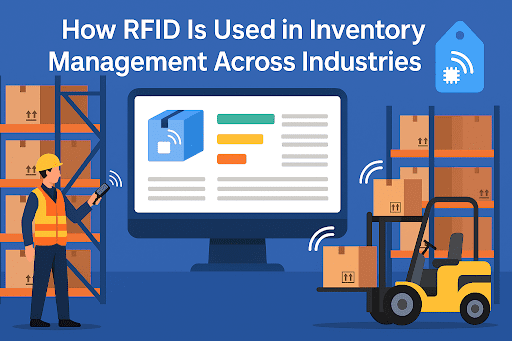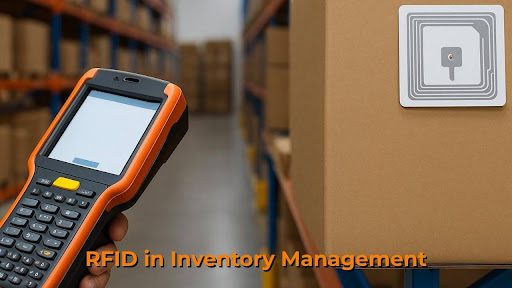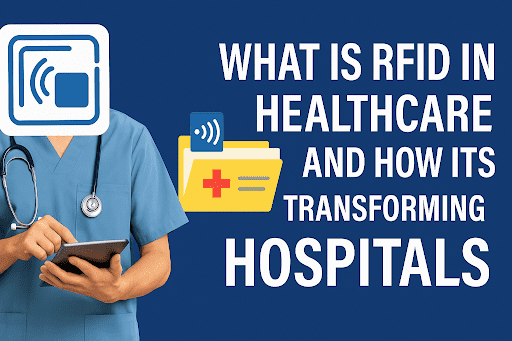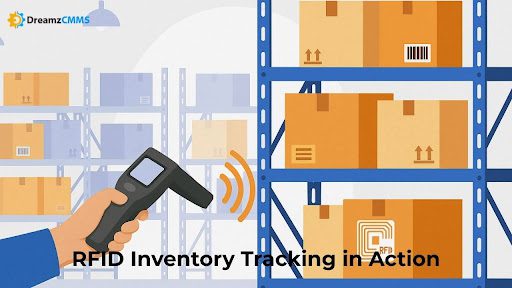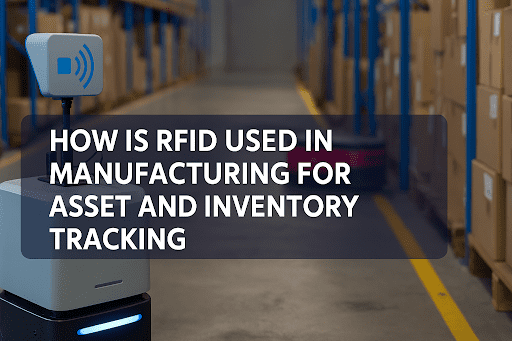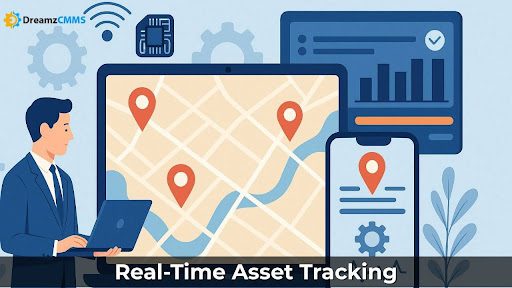 BACK TO Blog
BACK TO Blog
Asset Rental Management
RFID Asset Tracking
Hospital Automation Systems Using RFID Technology 2025
- August 21, 2025
- DreamzCMMS Team
- 10 minutes read
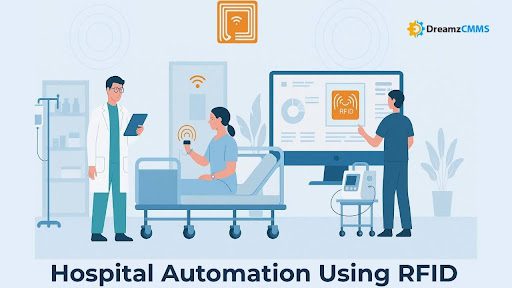
- August 21, 2025
- DreamzCMMS Team
- 10 minutes read
Hospital automation systems that incorporate RFID technology function as a revolutionary tool which enables healthcare organizations to optimize their efficiency while simultaneously increasing safety and patient satisfaction for 2025.
The healthcare industry is witnessing rapid transformation with RFID technology-based hospital automation systems which deliver better operations and improved asset tracking and patient care along with reduced costs.
The digitalization of hospital infrastructure worldwide has established RFID systems as mandatory components for delivering top-tier medical services. These solutions merge with hospital infrastructure to form connected systems which optimize workflows while minimizing human errors.
Streamline Maintenance for Better Healthcare OutcomesYour hospital operations will maintain smooth operation by implementing intelligent tools that prevent unexpected equipment breakdowns. The Asset Maintenance Management Software from DreamzCMMS enables you to execute precise maintenance planning and scheduling of tasks. |
Introduction to RFID in Hospital Automation
RFID (Radio Frequency Identification) functions as a wireless system that detects and monitors tagged items and personnel using electromagnetic fields. Within hospital settings RFID hospital automation solutions provide continuous real-time access to essential asset locations together with their current status and usage information for patients and staff.
The RFID hospital automation works together with advanced hospital management systems to execute vital hospital procedures that encompass patient movement control and medical equipment condition assessment and medication inventory monitoring.
Hospital organizations seeking modernization need to understand RFID technology fundamentals which can be learned by reading What is RFID Asset Tracking, to grasp RFID tag and reader principles alongside data system concepts.
Why RFID is Revolutionizing Hospital Automation in 2025
Healthcare facilities used to depend on manual work and barcode systems to manage their assets and patients before the present era. The healthcare automation RFID technology now provides hospitals with rapid automated intelligent hospital operational data collection in 2025.
Key Drivers for Adoption:
- Critical equipment items such as infusion pumps and ventilators become accessible to staff in a matter of seconds through instant asset location.
- RFID wristbands enable automated patient tracking which allows departments to monitor patient movements while providing accurate patient identification.
- The system tracks medicines and consumables through inventory automation for both expiry date management and quantity tracking and replenishment requirements.
- Security systems operated by RFID technology control access points to ensure that authorized personnel alone can enter restricted areas.
Read RFID in Hospitals, for an in-depth examination of how this technology improves healthcare operational efficiency and patient protection.
The dedicated RFID Asset Tracking Software enables hospitals to track assets on a large scale by providing complete tracking capabilities along with reporting functions and system integration capabilities.
Key Applications of Automation System in Hospitals Using RFID Technology
1. Patient Identification and Safety
The implementation of RFID hospital automation leads to substantial improvements in maintaining patient safety. Hospital wristbands containing patient medical records alongside allergies and treatment protocols receive RFID technology integration. This ensures:
- Accurate medication dispensing.
- Reduced risk of misidentification.
- Faster admission and discharge procedures.
The smart hospital RFID automation system uses patient wristband information to prevent medication errors by matching prescriptions.
2. Real-Time Asset Tracking
Medical equipment goes missing with high frequency which creates substantial operational problems for hospitals. Medical automation RFID solutions provide instant location detection of medical devices to avoid equipment downtime and cut down duplicate equipment purchases.
The article Real-Time Asset Tracking provides insight into how RFID operates for continuous asset monitoring throughout 24 hours.
Hospitals which rent equipment and share facilities can enhance their operational efficiency by implementing Asset Rental Management Software which tracks and schedules rental devices while preventing losses of high-value assets.
3. Inventory and Supply Chain Automation
Hospitals achieve optimal stock management through RFID systems for hospital workflow automation which places the correct stock at the right location at the right moment. They:
- The system automatically tracks inventory quantities.
- The system notifies staff about running low stock levels.
- Prevent waste by tracking expiry dates.
The implementation of RFID automated hospital processes has led to inventory waste reduction of up to 30% during the first year of operation.
The combination of RFID inventory information with an RFID Asset Tracking Software platform enables automatic reordering systems and total supply chain visibility.
4. Access Control and Security
The essential role of RFID hospital operations automation in maintaining safety boundaries and regulatory adherence for sensitive hospital areas stands crucial. The hospital security system controls access to restricted areas including operating theatres, laboratories, data centers and medicine storage rooms when staff members use RFID-enabled ID cards.
Key benefits include:
- Restricted Area Access - High-security zones remain inaccessible to unauthorized personnel through the system's access control system.
- Real-Time Logging – Every entry and exit is recorded automatically for audit and compliance purposes.
- Emergency Lockdowns – In the event of an emergency, access permissions can be instantly updated to secure sensitive zones.
- Staff Accountability – Tracks movement of personnel to improve operational transparency and security protocols.
The system protects valuable medical resources while maintaining requirements of healthcare security standards.
RFID Automated Hospital Processes – How They Work
RFID automated hospital processes operate through an easy-to-understand framework which delivers strong operational results. Hospitals implement automation of manual tasks through the integration of hardware with software and smart workflows.
1. Tagging –
Each asset and patient and staff member receives an RFID tag.
- The RFID tags get attached to medical devices including infusion pumps and wheelchairs and surgical tools.
- The tags embedded in patient wristbands contain medical history and allergy information along with treatment details.
- The RFID badges used for personnel identification also function as access control tools that restrict access to particular areas for staff members.
2. Tracking –
These tags are detected by RFID readers which are strategically placed throughout the facility at entrances and hallways and patient rooms and storage areas.
- The technology generates continuous automatic updates about the location of each item and person and patient.
- The contactless tracking system functions without the need for manual scans and barcode line-of-sight requirements.
3. Data Processing –
A central hospital management platform receives the tracking data which has been collected.
- Real-time dashboards receive updates from the software that shows asset locations and patient movements and equipment availability.
- The systems connect with Hospital Information Systems (HIS) and RFID Asset Tracking Software to provide a comprehensive view of all hospital operations.
4. Insights & Actions –
The system analyzes collected data to produce useful operational information for hospital staff members.
- The system generates alerts to alert teams about low inventory levels and missing equipment and unauthorized patient access to restricted areas.
- The system enables staff to take immediate action because it enables both medical equipment retrieval and patient redirection for reduced wait times.
- Historical data analysis provides the opportunity to develop better workflows and eliminate recurring operational inefficiencies.
The automation of these four steps through RFID-based hospital automation decreases administrative tasks and enhances decision-making abilities and optimizes resource utilization.
Smart Hospital RFID Automation – The 2025 Perspective
Modern smart hospital RFID automation systems combine functionality with:
AI Predictive Analytics – The system uses its predictive capabilities to schedule resources during peak times.
IoT Sensors – Tracks environmental conditions in real time.
Predictive Maintenance – The system monitors medical equipment to perform maintenance before equipment failure occurs.
Predictive servicing develops naturally from the analysis of RFID data. The combination of RFID tracking with predictive maintenance enables hospitals to decrease equipment downtime especially when dealing with rented or shared equipment that requires Asset Rental Management Software
Hospital Automation RFID Implementation Challenges
RFID hospital automation systems provide substantial advantages to healthcare facilities yet their successful deployment needs solutions for specific implementation hurdles.
1. Initial Investment –
Hospitals must spend money on RFID tags as well as readers antennas and software to establish RFID technology-based automation systems.
- Large hospitals must purchase between hundreds and thousands of RFID tags which results in increased initial setup costs.
- The implementation process demands funding for employee training along with facility renovations and continuous system maintenance.
- The investment leads to fast ROI through better patient results together with operational excellence and reduced asset disappearance.
2. Integration Complexity –
Numerous hospitals maintain outdated systems which never supported integration with current RFID technology.
- The integration of RFID hospital automation systems with Hospital Information Systems (HIS), Electronic Health Records (EHR), and maintenance platforms proves to be complex.
- API development, data mapping, and workflow customization may be required.
- A solution like RFID Asset Tracking Software which provides simple integration capabilities will help reduce these challenges.
3. Staff Resistance –
Change management is often one of the biggest hurdles.
- Hospital staff express reluctance toward RFID-based hospital automation because they are unfamiliar with it and worry it might replace their jobs.
- Staff members will understand RFID system implementation better when the system's purpose is clearly explained as a tool for administrative task reduction and accuracy improvement and safety enhancement.
The successful adoption of RFID hospital automation depends on providing hands-on training and continuous support to hospital staff.
Overcoming Implementation Challenges
A successful implementation of hospital automation RFID systems demands a strategic plan that tackles expenses as well as integration problems and staff acceptance and security concerns right at the start.
1. Focus on ROI –
The demonstration of investment return stands as an essential factor which enables leadership support for the initial expenditure.
- The implementation of RFID hospital automation solutions results in cost savings through reduced asset loss while simultaneously lowering equipment theft occurrences and shortening equipment downtime periods.
- The system generates faster patient processing and reduces manual inventory work and optimizes space utilization while producing better results.
- RFID hospital automation solutions demonstrate financial profitability through successful case studies and pilot project results that create a short-term return on investment.
2. Phased Rollouts –
Full-scale implementation should be delayed because starting small provides better results.
- A single department operating theatre and pharmacy should be the initial focus for RFID implementation because immediate success will be evident there.
- Staff members can refine workflow processes and fix problems while developing their comfort level before implementing the system in additional hospital departments.
- The sequential rollout methodology decreases operational risks while producing internal success stories that promote wider system implementation.
3. Training & Support –
Any RFID-based hospital automation project requires the active support of staff members to succeed.
- The system's purpose and benefits require interactive workshops and live demonstrations to help staff members understand their functionality.
- The organization must provide continuous technical support alongside additional training to keep staff members confident and proficient in their work.
Frontline staff participation during early development stages allows them to provide feedback which enhances workflow design and usability features.
The Future of Hospital Automation with RFID
RFID hospital management automation systems will combine blockchain technology for protected record storage with AI technology for predictive medical care during the upcoming years. The healthcare industry will connect RFID systems to telemedicine platforms while adding wearable devices and automated diagnostic equipment.
The RFID automation system in hospitals serves as the fundamental operational excellence system to meet increasing healthcare requirements.
ConclusionRFID hospital management automation systems will combine blockchain technology for protected record storage with AI technology for predictive medical care during the upcoming years. The healthcare industry will connect RFID systems to telemedicine platforms while adding wearable devices and automated diagnostic equipment.The RFID automation system in hospitals serves as the fundamental operational excellence system to meet increasing healthcare requirements. Discover how you can start your RFID journey with RFID Asset Tracking Software or streamline your shared and rented medical assets with Asset Rental Management Software. |
Transform Your Hospital Operations Today with DreamzCMMS
Upgrade your healthcare facility with advanced RFID automation systems designed to boost efficiency, reduce operational costs, and enhance patient safety.
From asset tracking to workflow automation, DreamzCMMS provides smart tools for the future of healthcare.
Ready for More?
Talk to one of our CMMS experts and see how DreamzCMMS can simplify your maintenance operations.
Book a free consultation